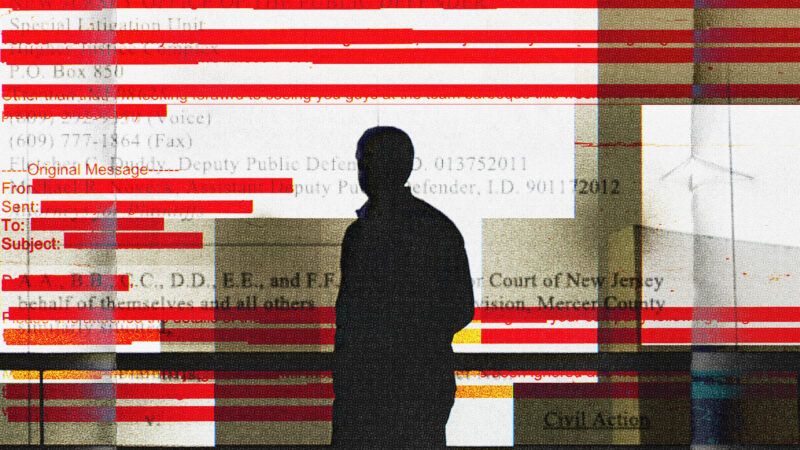New Jersey Police Have Waited Almost 2 Years To Expunge a Man's Criminal Record, Lawsuit Claims
Individuals are waiting months to have their criminal records expunged after court orders, according to a new lawsuit.

According to a new class-action lawsuit, police in New Jersey are taking as long as 20 months to comply with court-ordered expungement of individuals' criminal records.
Under New Jersey law, individuals can generally have their criminal records expunged after 10 years without a criminal conviction. Those convicted of substance use–related crimes, though, can have their records expunged as soon as they complete an addiction treatment "Recovery Court" program. Additionally, after the passage of a 2022 law, those who are convicted of certain crimes committed due to being victims of human trafficking can apply to have their records expunged any time after conviction.
But many individuals are waiting months, even years, to actually have their criminal records expunged after a judge has granted their request, according to the lawsuit, which was filed by the New Jersey Office of the Public Defender on Monday. Plaintiffs say that they have been rejected or chilled from employment, licensure, and volunteer opportunities after their record was revealed.
The New Jersey State Police (NJSP), which is tasked with administering expungements, has delayed processing expungement orders for the plaintiffs in the suit for at least several months. One plaintiff still has his criminal convictions on record 20 months after a court ordered his expungement.
"Plaintiffs, and the class members they seek to represent, share a common grievance— that the NJSP's extreme delay in processing expungement orders deprives them of their right to a timely expungement and its resultant benefits," the lawsuit reads. "Because of this delay, criminal records that should have been expunged have instead been repeatedly shared with employers and other entities, throughout the State and in other jurisdictions, by the NJSP, for months after petitioners' expungement orders were granted and received by the agency."
The lawsuit further alleges that the delay violates plaintiffs' rights under New Jersey civil rights statutes by "allowing their expungement orders to languish unprocessed for an unreasonable amount of time after such orders were received."
Individuals who have shown a longstanding commitment to living a law-abiding life shouldn't face the permanent punishment wrought by having their criminal convictions constantly appearing on background checks. While New Jersey law has thankfully embraced this idea, bureaucratic holdups from state police have continued to deny New Jerseyans the benefits of their court-ordered criminal record expungements.
"This increased delay is unacceptable and inexplainable given that the New Jersey State Police received $15 million from taxpayers to improve and modernize their expungement processing systems in 2019," Meredith Schalick, director of Rutgers Law School's Expungement Law Project, said in a statement to the New Jersey Monitor. "New Jersey can do better for people seeking a second chance, and the New Jersey State Police should be held accountable for failing to do their job."


Show Comments (39)